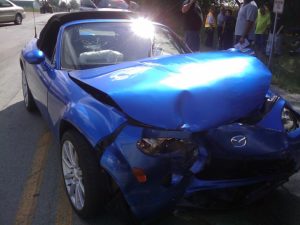If you have been involved in a car accident and you have decided to move forward with a personal injury case, your attorney might prepare you for a process known as “discovery.” During the discovery process, both sides will talk about their positions. The other party might defend themselves and give reasons and evidence stating that they couldn’t possibly be liable for your accident, while you attempt to protect your own rights and shed light on what happened at the time of the accident through your own evidence. A West Virginia accident lawyer can open your eyes to this process and how to protect yourself.
In the midst of discovery, you might become part of something known as the “deposition.” The deposition part of discovery lets a defendant explore the facts that the plaintiff has conjured for the lawsuit. You will be asked a series of questions and you might be feeling nervous but, because this is the basis for your claim, you don’t want to slip up and you want to be prepared. Today, we want to focus on some things that you should remember and things you should do when the deposition is happening so that you can protect your rights.
Tips for the Deposition Process
Give Very Little Information: You are the plaintiff involved in your case and you can’t avoid deposition, but this does not mean that you have to divulge everything. The defendant’s attorney will attempt to get information out of you as they ask you a series of questions that could take several hours to get through. You want to be honest, but you never want to give too much information when it comes to your injuries and what happened at the time of the accident. Always answer the questions but give little details. You don’t want your own words to be later twisted and used against you.
Prepare Yourself: When you get ready for deposition, you should always have an experienced car accident attorney. You will need to look at several forms of evidence, such as the police records and any medical records that you have received. You want to make sure that your answers to questions have stayed consistent and that you can answer them honestly. Brush up on the background of your accident so that nothing comes as a surprise.
 Learn the Tricks from a Defendant: The defendant in your case will want to lock you into a set of facts that you have been using ever since you started working with the insurance company after your accident. When it comes to your story, you never want there to be inconsistencies so that the other party starts asking questions and wondering if you have been honest with them. For instance, you don’t want to say that you were driving 35 mph at the time of the accident when you speak with the insurance company, but then tell the defendant’s attorney that you were going 55. This is a big difference and can severely impact your case results.
Learn the Tricks from a Defendant: The defendant in your case will want to lock you into a set of facts that you have been using ever since you started working with the insurance company after your accident. When it comes to your story, you never want there to be inconsistencies so that the other party starts asking questions and wondering if you have been honest with them. For instance, you don’t want to say that you were driving 35 mph at the time of the accident when you speak with the insurance company, but then tell the defendant’s attorney that you were going 55. This is a big difference and can severely impact your case results.
You Will Be Recorded: The attorneys involved in the case will be taking notes and writing down anything you say to check for inconsistencies down the line. They might take note of aspects relating to your personality as well, such as whether or not you are a likable person or if you seem to have an unreliable memory. You want to make the best impression.
How a West Virginia Personal Injury Attorney Can Help
Our personal injury attorneys in West Virginia understand how difficult each step of the personal injury claims process can be for you, especially if you have never been through it before. Being involved in a car accident in West Virginia can be a daunting time as you fight for your rights and work toward the compensation you deserve. At Katz, Kantor, Stonestreet & Buckner, our accident attorneys are here to help you in your time of need. Please contact us at (304) 713-2014 to find out what we can do for you.
